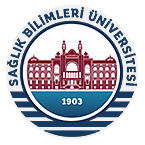ABSTRACT
This study was designed to investigate the relationships between routine hematologic and radiologic tests and time period to obtain negative smears in patients with smear-positive lung tuberculosis. The study involved either sputum or fasting gastric juice smear-positive 216 cases. Complete blood count, tuberculine skin test, posteroanterior chest radiography and smear bacillus load at the start of the study and time period to obtain a negative smear were recorded in all cases. The mean time period to obtain a negative smear was 4.5±1.7 (range: 2-11) weeks. There was a statistically significant relationship between the radiologic severity of lesions and time period to obtain a negative smear (p=0.016). There were no statistically significant relationships between the time period to obtain a negative smear and other clinical and laboratory parameters and tuberculine skin test. The time period to obtain a negative smear was longer than eight weeks in 13 patients. In conclusion, radiologic severity of lesions at the beginning of the treatment may affect the time period to obtain a negative smear. Thus, it should be considered that time period to obtain a negative smear may increase in the absence of drug resistance in patients with tuberculosis who have severe radiologic lesions at the start of treatment.



